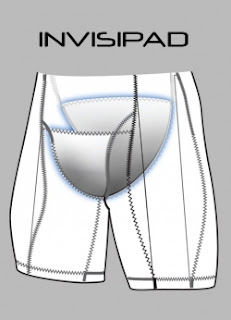FACADES
recently, i found my brain playing philip glass to itself as it propelled my body through the space of cold winter air. there was condensed breath, sunlit snow, bare trees casting shadows on the shimmering, white landscape, the wind and the motion of my limbs. it was a beautiful moment.
a few hours later, while reading through a recent slowtwitch post by jordan rapp, a series of associations around the theme-word "facade" solidified (somewhat) in my head. the article in question was unexpectedly and uncharacteristically tangential and anecdotal. at points, it seemed to be as much about his idealization of his cyber-dad, dan empfield as anything else.
what was most interesting were the evocations in the article with respect to charity. this is where the facade idea started to solidify for me. charity is often part of the facade for an elitist business idea, and this seems true when it comes to the ironman "executive challenge". but who cares?
what is wrong with elitism? if you fly first class, you get moet-chandon, real china and better food. if you can pay more, then why shouldn't you get preferred entry and treatment at an ironman event? ironman is a privately owned sports event, not a church or public institution. i find it strange that anyone would take offence to blatant elitism in a sport that tends to attract hyper-motivated, type A, above average income people in the first place.
facade is the face we show and how that makes us feel about what we are doing.
sure, ironman can lead to self discovery and betterment, but so can washing dishes in a bar (i have done both, i know). one thing i find interesting about ironman is how its adherents seem to feel that it is somehow a morally lofty thing to do, or at the very least, a spiritual journey. the WTC sells this idea big time. it is part of the facade of the ironman brand.
my own theory about this, and i could be wrong, relates to the role of suffering in narcissism. the most obvious face to narcissism is that of self-glorification, entitlement and a relative lack of concern about others. sound familiar? (ironman, "executive" anything, kevin moats). but, there is another, more apocryphal side to narcissism that can be found wrapped in the cloaks of self-sacrifice, monastic asceticism and service to others. i believe we are hard wired to perceive suffering as a purifying experience. think of a sweat lodge, for example.
to the psyche, there is no greater narcissistic achievement than purity itself. suffering and/or penance, is the royal road to purity. the more we suffer, the more pure we feel. this self perception of purity is the ultimate narcissistic high, unless you are truly anti-social, and thank goodness, few of us are.
i won't even bother to posit on the underlying physiological correlates of the above, nor the social evolutionary forces that likely mandate it. (there, i just did!).
the point i am getting at, is that ironman has this facade of purity about it. those doing it seem to feel that the suffering involved is its own justification, on almost moral grounds. images, like those of julie moss dragging herself to the finish line and shitting herself, move us to tears. they make us aware of the dazzling potential in the human will. most of us seem consider displays of willpower as good or desirable in an automatic, almost unconscious way. but while being adaptive, is there anything fundamentally "good" about the will to suffer or the will to survive?
i don't know, but i am simply highlighting something that i think gets missed a lot and that i think turned up in rapp's article, or maybe more accurately, in what probably motivated it, which was a need, on some level, to justify something as having intrinsic value, when the reality is probably neither here nor there.
this is what i mean by facade. things don't always have to mean something other than what they are. however, we are not really all that "mindful" most of the time, and our brains tend to view almost everything as a symbol of something else. this is how we are hard-wired to think. this is why and how we pass judgment on experience. sunshine symbolizes warmth, goodness (but what about skin cancer?), blood symbolizes violence, dismemberment, death (but what about devilery of oxygen to starving tissue?). so we attribute symbolic significance to things. we pay attention to image, and image tells us about what things are, in symbolic terms, so we lose the sense of the fullness of what they really are. this is facade.
there is one other aspect to all of this that i have found relevant to communicate.
triathlon is a sport about symbol, signification, facade. look healthy. look fast. look young. look rich. look skinny. look like you can suffer. look like you have suffered enough to be beautiful, fast and thin in spandex.
underneath the facade, endurance activity becomes part of your neural and cellular programming. your tissues crave the circular rhythm that is endurance training. (just like the philip glass music above pulls you into its cycles, undulations, crescendos, repetitions). your mitochondria proliferate. your hormones excrete, blood vessels pulsate like busy highways. your machine wants to expend, adapt, stress, repair, ascend, float and struggle. then the machine craves quiet. it builds itself. it readies itself for more. it begins to want more. the ghost in the machine starts to feel empty in the absence of the dance of stress and recovery. this is the music beneath the facade. this is where the endurance animal lives.



Comments
Post a Comment